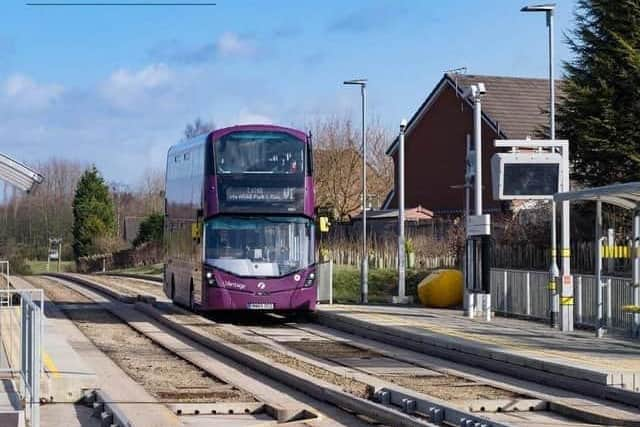Worries Leigh Guided Busway is "victim of its own success" and will see more people revert to using a car
and live on Freeview channel 276
Coun Barry Taylor said people could choose to travel by car due to the packed buses, and claimed passengers were being ignored at bus stops due to overcrowding on the vehicles.
“The transport sector is the highest emitter in the borough,” he told the Confident Places Scrutiny Committee. “What we did was manage to get the Leigh Guided Busway and what is happening now is that people are queueing up and they’re [the V1 buses] going straight past.


Advertisement
Hide AdAdvertisement
Hide Ad“We know they’ve cut services and what’s happening is people are getting on earlier and those further down can’t get on. Eventually what is going to happen is that people will say I’ll go in the car instead.”
Paul Barton, director of Environment for Wigan Council, explained he would “put pressure on” Transport for Greater Manchester and mayor Andy Burnham to look into this. Transport is a key issue in Wigan as it is more isolated than the other boroughs in the county, having no tram service and little in the way of train stations compared to other boroughs.
However, in terms of emissions, committee chair Coun John O’Brien told the chamber they are surrounded by busy roads with thousands of cars using the nearby M6, M61 and the East Lancs road on a daily basis. Despite this, the borough’s emissions have dropped and there are plans to become more carbon neutral with a proposal to bring solar panels to Leigh Sports Village (one of their biggest carbon emitters), the committee heard.
The committee also praised the work done by the environment team on the climate crisis – who have overseen a 7.7 per cent reduction in emissions from 2019-2020 (the most recent data).
Advertisement
Hide AdAdvertisement
Hide AdAfter declaring the climate emergency on July 17, 2019, the council has vowed to improve their air quality and transport, natural environment, improve sustainability and the built environment and increase resilience to flooding. In the time since, 70,000 trees have been planted, the recycle rate is 53 per cent, decarbonisation measures worth £5.7m have been implemented on five council owned buildings and work to improve energy efficiency in homes has seen large engagement, a report stated.
